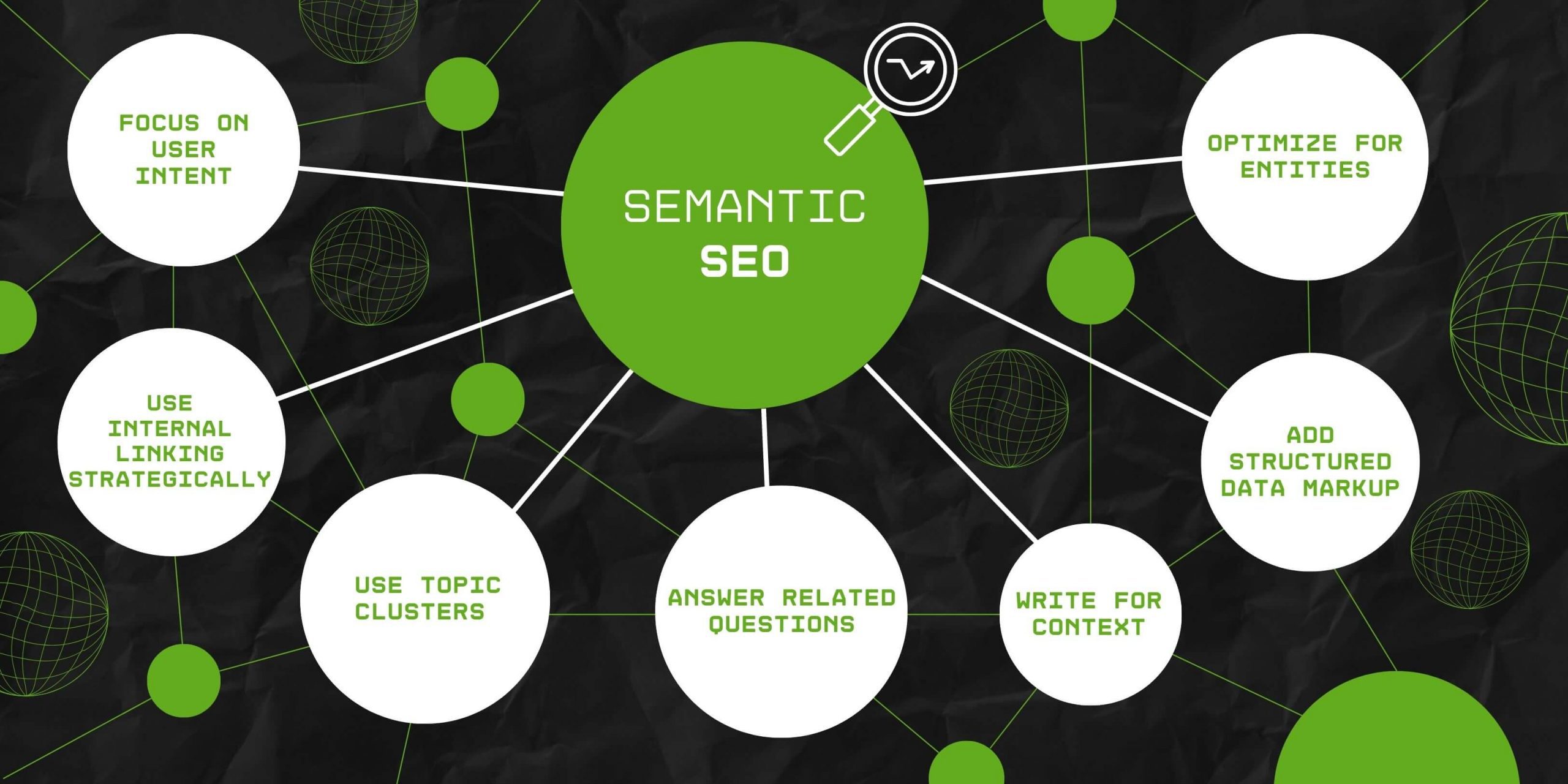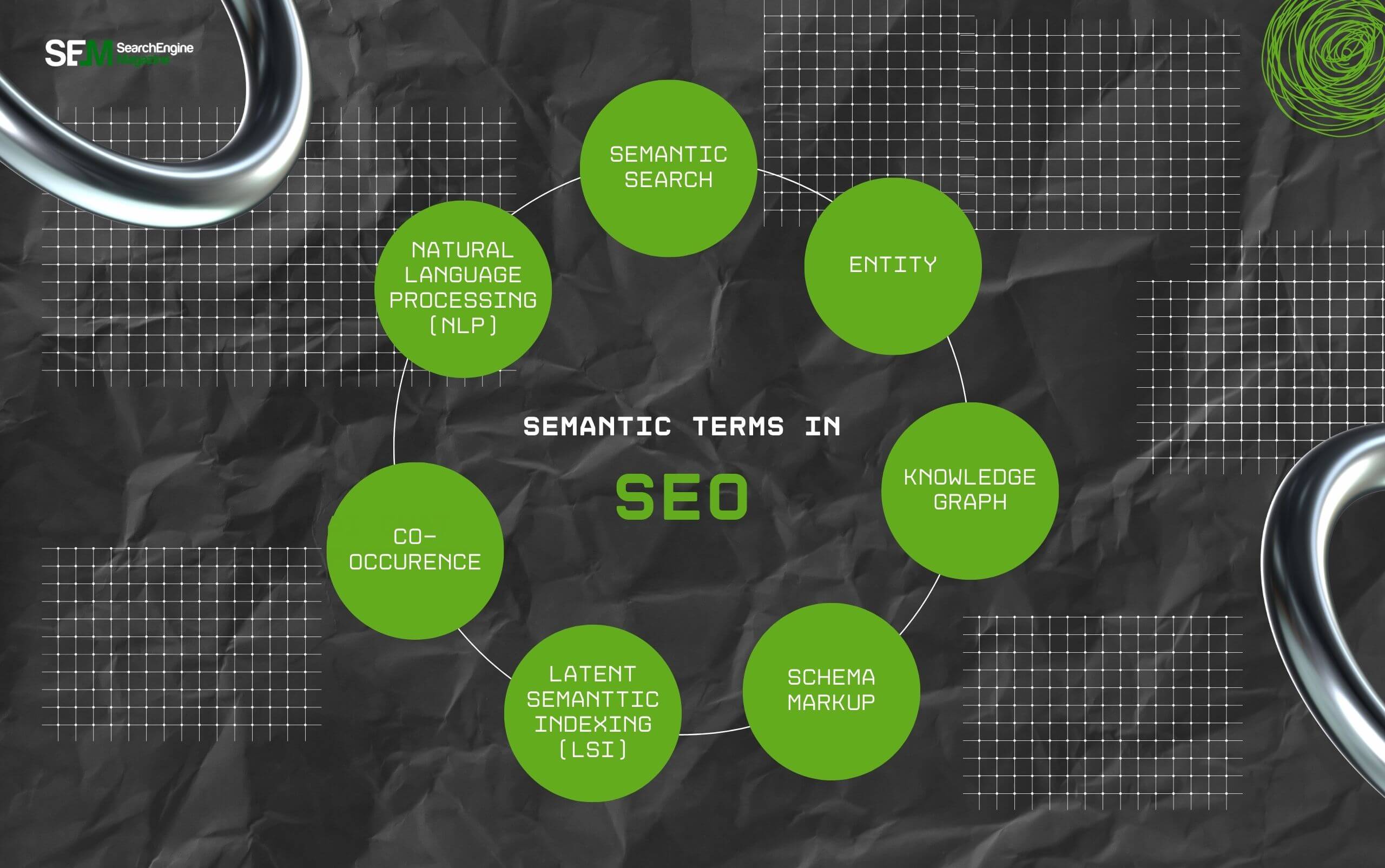E-Commerce SEO Audit: How To Run Analyzes The Performance Of Online Stores?
Feb 04, 2026

Feb 04, 2026

Feb 04, 2026

Feb 02, 2026

Feb 02, 2026

Feb 02, 2026

Feb 02, 2026

Feb 02, 2026

Jan 28, 2026
Sorry, but nothing matched your search "". Please try again with some different keywords.


In the ever-changing realm of digital marketing, search engine optimization (SEO) remains a pivotal cog in the online visibility wheel.
But in the past decade, the emergence of semantic web technology has changed how search engines analyze content. From keyword-centric analysis, the focus has shifted to the user intent behind the search queries.
So, search engines analyze the topical context of your content to understand its intent and meaning.
And, provides accurate and helpful answers to the user queries through ranking relevant sites, featuring snippets, or the AI Overviews.
Naturally, it is crucial to ensure your content is Sematic SEO optimized to enhance your digital visibility and ranking on SERPs.
If you are wondering — “How to optimize my content for semantic search?” You have come to the right place.
Today, I am going to break down the complexities around Semantic SEO to help you understand what it is, why you need it, and how to optimize content for Semantic search.
So, keep reading to know more!

Given that Google cannot read through the content and understand it like a human being, it uses the “User Context Based Search Engine Patent” to decode the intent behind the content.
That is, its algorithms analyze the phrases, keywords, and word combinations in the content to identify the context. Based on this, it categorizes the content into different topic domains.
In addition to this, Google looks into the entities — distinct context or ideas that relates to individuals, organizations, concepts, places, and many more.
With its help, search engines decipher the relationship between the word and the concept.
For instance, when a user searches “apple”, Google tries to figure out whether they are looking for the fruit or the company. So, based on that, it provides the relevant answers.
Moreover, there is another crucial aspect — embeddings. This helps algorithms understand the meaning of the word or phrase (semantics) along with how they are used in sentences (syntax).
Basically, it helps in creating a link between the word and the code (vectors), creating a specific domain for a unique word.
So, when any search query word falls within the vector space, Google pulls up the related content in that domain.
That is, Google creates the Knowledge Graph to interlink related words and phrases within the vector space.
Even though Semantic SEO is the new Gen technology, adopting its strategies and best practices can help in staying ahead of the algorithmic updates. Giving you countless benefits with your content visibility.
When you create Semantic SEO optimized content, you give signals to Google for specific domains.
So, ensure that your content follows the E-E-A-T, works around a topic rather than a keyword, and provides user-intent information.
So, if you are writing about SEO practices, make your article informative with user-intent queries. That is, you can include sections like —
By covering these, you can make your content more user-intent friendly. So, increasing the chance of ranking.
Once Google understands the context of your page, it will rank your content for related keyword searches.
Additionally, if you use the schema markup, your content will rank for more keywords than the focused one.
If you structure your page with related content, there is a higher chance of your page appearing in other SERP features.
For instance, if you add images, ratings, reviews, and pricing information for products, your ecommerce site will rank.
And, if your content covers related queries, it will show up under the “People Also Ask” section.
Now, if your content has quality information that directly answers the search queries, you might get featured on the AI Overview of Google.
For instance, if your content is about the AEO agency and you kept a section that explains in detail — “Why do you need the AEO Agency?”
Then, when there is a search query on — “Why AEO agency is important?” Google will take snippets from your content to create its AI answer. And, link your article next to that.
So, you get more visibility and enhanced ranking on Google.
Over the decade, semantic search has revolutionized SEO strategies, shifting them from a traditional approach to a modern one.
At its inception, SEO was heavily reliant on keywords. The aim was simple — to rank high for specific search terms and attract organic traffic.
Nonetheless, with the evolution of the internet, user search behavior and expectations also advanced.
Google’s groundbreaking Hummingbird update in 2013 signified a pivotal shift in this progression.
The focus transitioned toward semantic SEO with an objective to enhance search accuracy by truly understanding the searcher’s intent and the contextual implications of the search terms used.
Semantic SEO transcends beyond the surface-level use of keywords to delve into the essence behind them — the user intent behind the search queries.
It prioritizes understanding the synonyms, related terms, and the holistic context to provide search results that hit the mark in terms of accuracy and relevance.
The emergence of AI and NLL has dynamically changed the entire landscape of the search engine.
By changing the focus to topics and information-rich content, search engines are slowly behaving more human-like than before.
When you comprehend the power of context, you can tailor your SEO strategy to align more closely with user intent.
This may involve incorporating long-tail keywords that capture the query’s essence, including related terms, or crafting comprehensive content that doesn’t just answer the immediate question but addresses a spectrum of related queries.
For instance, when you search a query, you find the SERP page has a section named “People Also Ask” — giving you a list of keywords that surround your context.
And, from these keywords, you can choose some long-tail ones and incorporate them within your content. Making it enriched with the complete context.
Furthermore, let’s say you are searching for some yoga exercises. So, you will type “yoga exercises” into Google. Then, the SERP will show you a list —
So, when you include these search queries in your content, it becomes semantic content. And, it helps in answering both the immediate and related questions around the topic.
In 2023, Google introduced its generative AI model to enhance user experience with accurate and informative answers for search queries.
That is, now users get an AI snippet at the top of the SERP page summarizing the information in smaller chunks. So, the SEO strategy tweaked its practices to ensure content becomes more GEO (Generative Engine Optimization) friendly.
For instance, now to make your content rank on AI Overview, you need to incorporate query-based sections. Like, if your topic is “Warehouse Management”, your content should have sections —
By covering these, your content becomes relevant to Google. So, it ranks the article and takes snippets from it to generate the direct answer.
NLP has massively impacted Google’s understanding of the website content. Helping it to provide relevant content for the search queries.
So, with the help of the NLP techniques, Google can now extract the keywords and entities from the content. Creating a vector link with the related domain.
In addition to this, Google’s improved understanding of the user intent behind the search query is a result of the incorporation of NLP.

If you are looking for a simple process to optimize your content for the semantic search, you just need to follow these strategies.
Despite the shift toward semantic SEO, keywords haven’t lost their relevance. What has changed, however, is the approach to keyword research.
Holistic keyword research now includes related terms, synonyms, and long-tail keywords that mirror user intent, painting a comprehensive picture of the topic at hand.
For instance, when you are creating content solely relying on one keyword, you are avoiding the semantic SEO practices.
So, if you are writing about “iPhones,” then your content should revolve around the related queries, terms, and recent searches. Making it a holistic contextual content.
Content that resonates with the reader and effectively answers their queries forms the backbone of semantic SEO.
It goes beyond the specific keyword to explore the broader topic, providing value to the reader and boosting user engagement.
This contextually rich content helps improve your SEO while fostering a loyal audience.
Suppose you are writing about a query on the latest AI integration tool in Trello. And, you see that you can easily answer the query within 500 words.
Then, just write 500 words. There’s no need to unnecessarily drag on the topic for 5000 words just to follow the set principles of SEO rankings.
Surprisingly, you will see that your content becomes more relevant and user-friendly. So, it will drive more website traffic and audience engagement.
Structured data, commonly known as schema markup, serves as an indispensable instrument in the semantic SEO toolkit.
By aiding search engines in better comprehension of the content, it boosts your website’s visibility.
In the realm of semantic SEO, it acts as a potent tool that signals search engines about the context and relevance of your content.
For instance, if you want to create a website for pets’ needs and entertainment, you need to prepare the schema markup properly.
You can include certain markups like — Pet-friendly Toys, Best Dog Foods, Cat Beds, Virtual Vets. These markups will help Google understand what your site is about.
Furthermore, suggest it when there is a query related to your markups. So, making your website more visible on the internet.
With the rapid evolution in search engine algorithms, Semantic SEO is the need of the hour. Making your content more context-focused rather than relying only on keywords.
Given that the purpose behind creating or optimizing content is to make it relevant, you need to leverage the right SEO strategies.
So, by employing the semantic SEO strategy, you can help Google understand the context and idea behind your content, and cluster it with related topic domains.
Now that you have a comprehensive idea about how the semantic web has morphed the search engine algorithms, employ the right strategies and improve your online visibility.
Barsha is a seasoned digital marketing writer with a focus on SEO, content marketing, and conversion-driven copy. With 7 years of experience in crafting high-performing content for startups, agencies, and established brands, Barsha brings strategic insight and storytelling together to drive online growth. When not writing, Barsha spends time obsessing over conspiracy theories, the latest Google algorithm changes, and content trends.
View all Posts
E-Commerce SEO Audit: How To Run Analyzes Th...
Feb 04, 2026
Search Engine Positioning: How To Improve It�...
Feb 04, 2026
How To Hide Your Following List On Instagra...
Feb 02, 2026
B2B vs. B2C: What Are The Key Differences B...
Feb 02, 2026
Threads vs. Twitter: Which One Is Better For...
Feb 02, 2026

